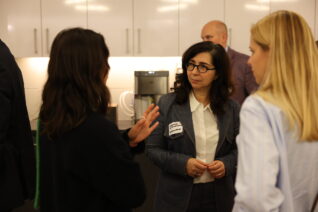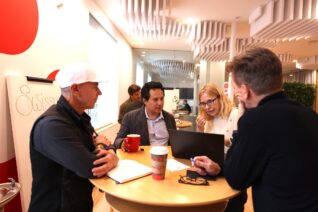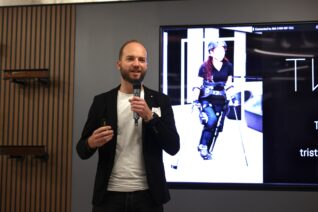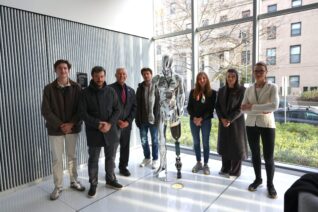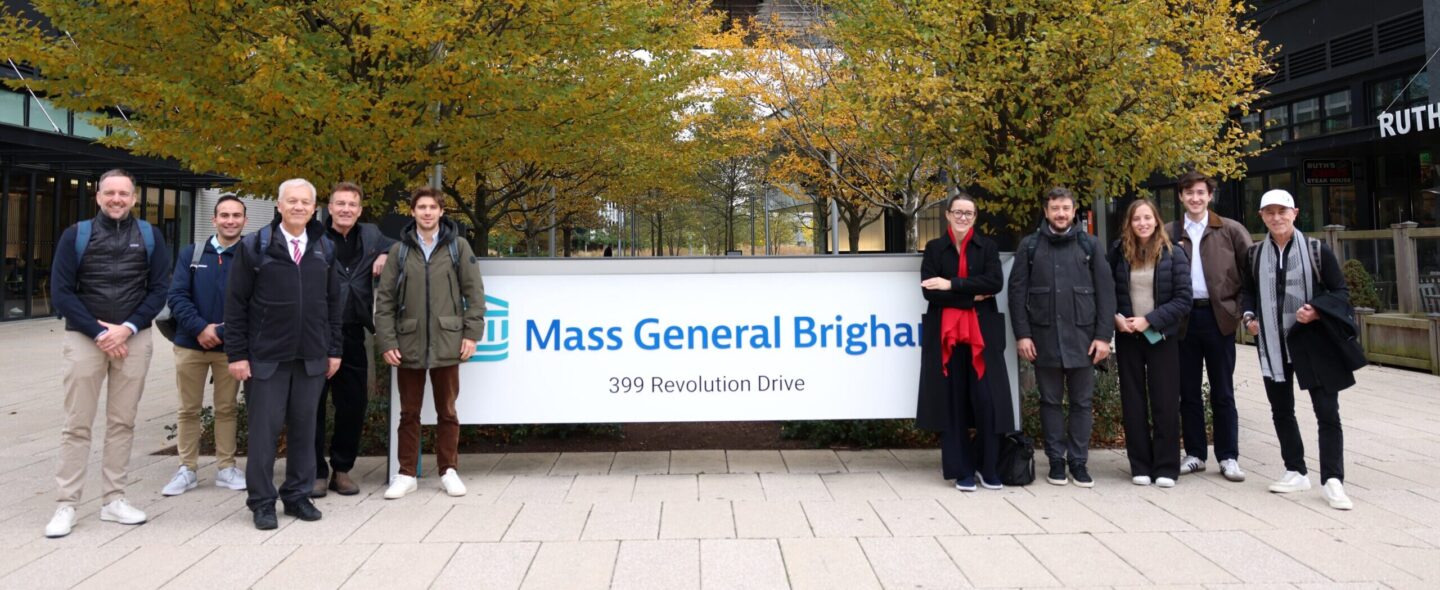
November 14, 2025 | Boston
Entering the U.S. market is “a big, complicated question for any startup,” says James Creeden, co-founder and co-CEO of Swiss startup Qnomx—but medtech startups face an extra layer of complexity. In addition to navigating differing legal frameworks for hiring, incorporation, and intellectual property, they need to learn to navigate the American healthcare system. According to Frédéric Schuind, founder and CEO of Basel-based Spirecut, this means grappling with “the complexity of coding and reimbursement—and it’s not only coding, […] you also need [FDA] approval, and payment is so different from one payer to another.”
In the first week of November 2025, eight Swiss startups joined the Medtech Startup Camp in Boston, powered by Innosuisse and managed by Swissnex, to get answers to these questions and more. The startups spent five days, meeting with legal experts, regulatory consultants, investors, and potential partners, and exploring Boston as a gateway to the U.S. market.
Throughout the week, Swissnex organized meetings with local experts on IP law, incorporation, hiring, go-to-market strategy, reimbursement, contract law, and more, to help the startups chart out practical steps to market entry. “The [sessions] on regulatory pathways and reimbursement were really key to me,” said Yannick Ormen, co-founder and COO of Onescope, a Geneva-based company that created the Pneumoscope, an AI-powered three-in-one stethoscope, pulse oximeter, and thermometer. “If you don’t have a clear plan or strategy on these two, it’s very hard to get to the market.” Roland Pfeuti, co-founder and Director of HealthyMentis, a Zurich-based startup offering personalized neuro-nutrient plans to promote mental strength and resilience, echoed that takeaway. “It’s so critical that you understand not only FDA [approval], but the whole reimbursement side, and that you really design your FDA strategy with a broader agenda in mind.”
Though a single session can only scratch the surface of any of these topics, they helped startups find their footing, and created the opportunity for more in-depth conversations. “When you’re thinking about the U.S., who do you even ask about IP questions, or about coding questions, or legal questions, HR, things like this?” said Creeden. He continued, “The program here gives you at least a starting point. You may not end up working with this person, but now I know what kind of person offers this kind of advice. In other words, it was a big advantage that we didn’t have before.” “I think now, with this big picture, we can deep-dive a bit in each of these parts,” said Ormen. “But we also have all the network, in terms of service providers, to really deep-dive into these topics, and really prepare market entry.”
I think it’s almost impossible for a startup to mature in such an accelerated way on their own,” said Joanna Ledunger, founder & CEO of HealthyMentis. “It would take months to come up to the same level of knowledge.”
A highlight of the program were site visits to Massachusetts General Bringham (MGB) and virtual meetings with the Mayo Clinic. “[They] are very important potential partners for future clinical or business developments, and they are really hard to get when you are just a startup trying to reach out,” said Ormen. For Stefano Gallotto, founder of dEEGtal, a Geneva-based company with an AI-powered platform for rapid epilepsy detection, a site visit to Swiss-founded Portal Instruments offered a glimpse of the future. “It was very inspiring to see that this is actually possible, people can do it. It’s maybe not that easy, but you can do it.”
The startups also had opportunities to workshop their pitches and get constructive insights from local investors. “The pitching sessions were really useful. It’s always painful, but the feedback was really high quality,” said Creeden. “And there’s no substitute for practice in front of people[…] It’s a very valuable experience.” On November 5, the startups presented their pitches in front of a cross-section of Boston’s medtech ecosystem at a Swissnex-organized pitch event at ven^x, a deeptech VC hub in downtown Boston, in collaboration with Lando & Anastasi, LLP.
In addition to the pitch event, Swissnex helped the startups grow their local networks though individualized outreach and introductions ahead of the camp. The participants were also excited to take advantage of the openness of the Boston ecosystem to explore on their own. “People from all different levels of the organizations will just show up for a session at MIT on biotech, for example,” said Creeden. “That’s a great way to meet people, and people are really open to being approached. I think it’s much more difficult to meet those people in Europe.”
By the end of the week, the startups had gained the knowledge and connections to start planning their next steps. “I think with the program, we have this really great overview of the complete U.S. market, and on the other side, a great network to move forward from there,” said Ormen. “I think it’s almost impossible for a startup to mature in such an accelerated way on their own,” said Joanna Ledunger, founder & CEO of HealthyMentis. “It would take months to come up to the same level of knowledge.”
Asked what advice he would give Swiss startups looking to embark on their internationalization journey, Schuind said, “If you’re really considering the U.S. market, apply and come here, and understand the complexity and be welcomed like we have been.”
